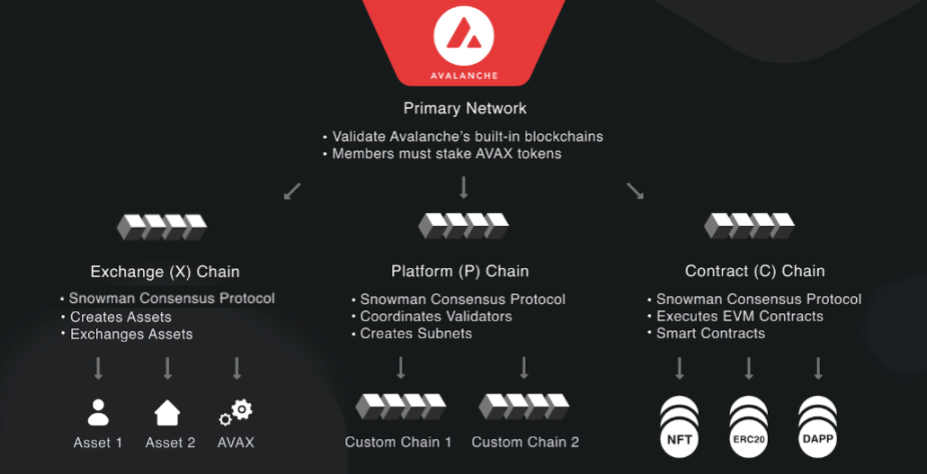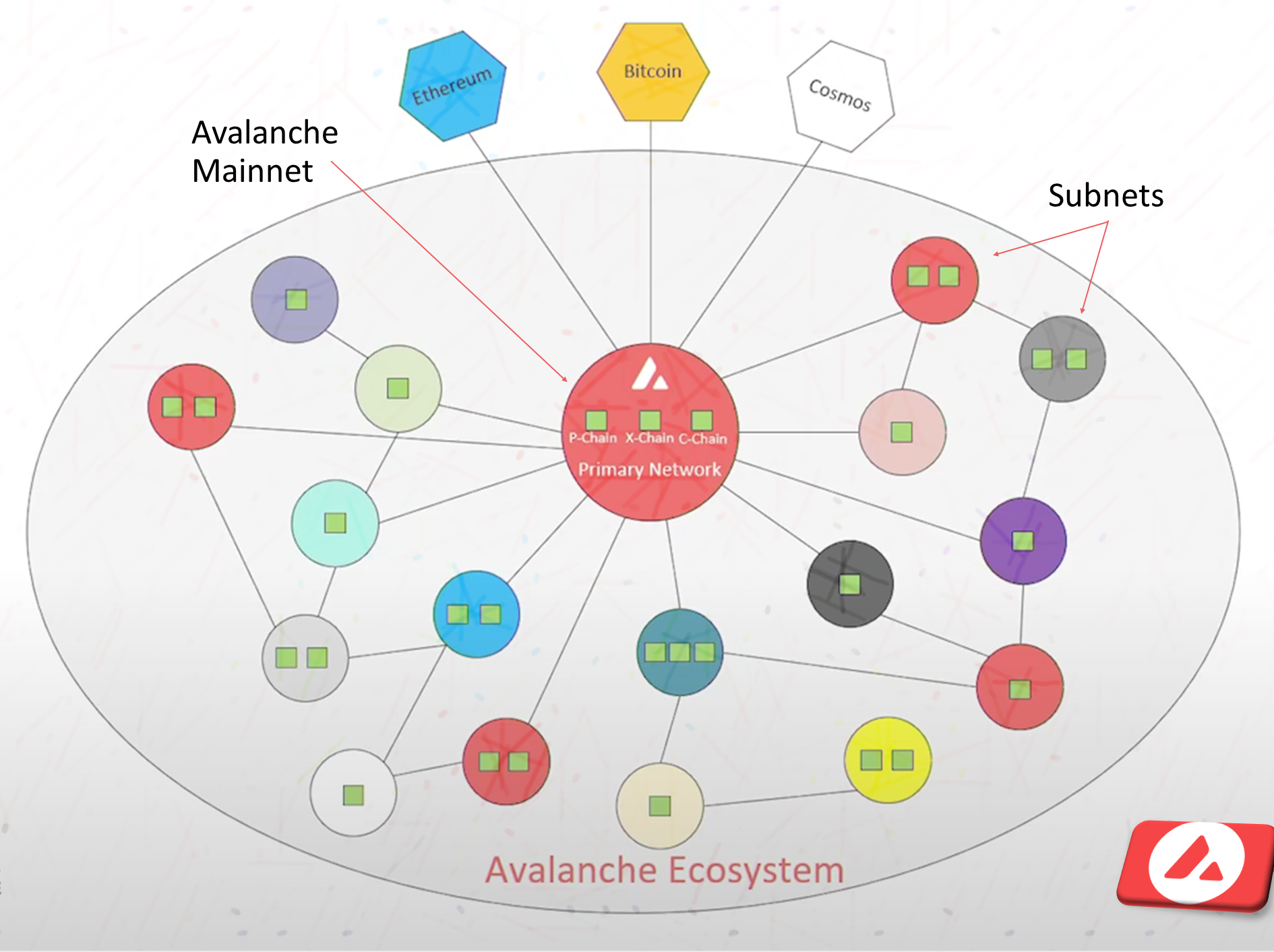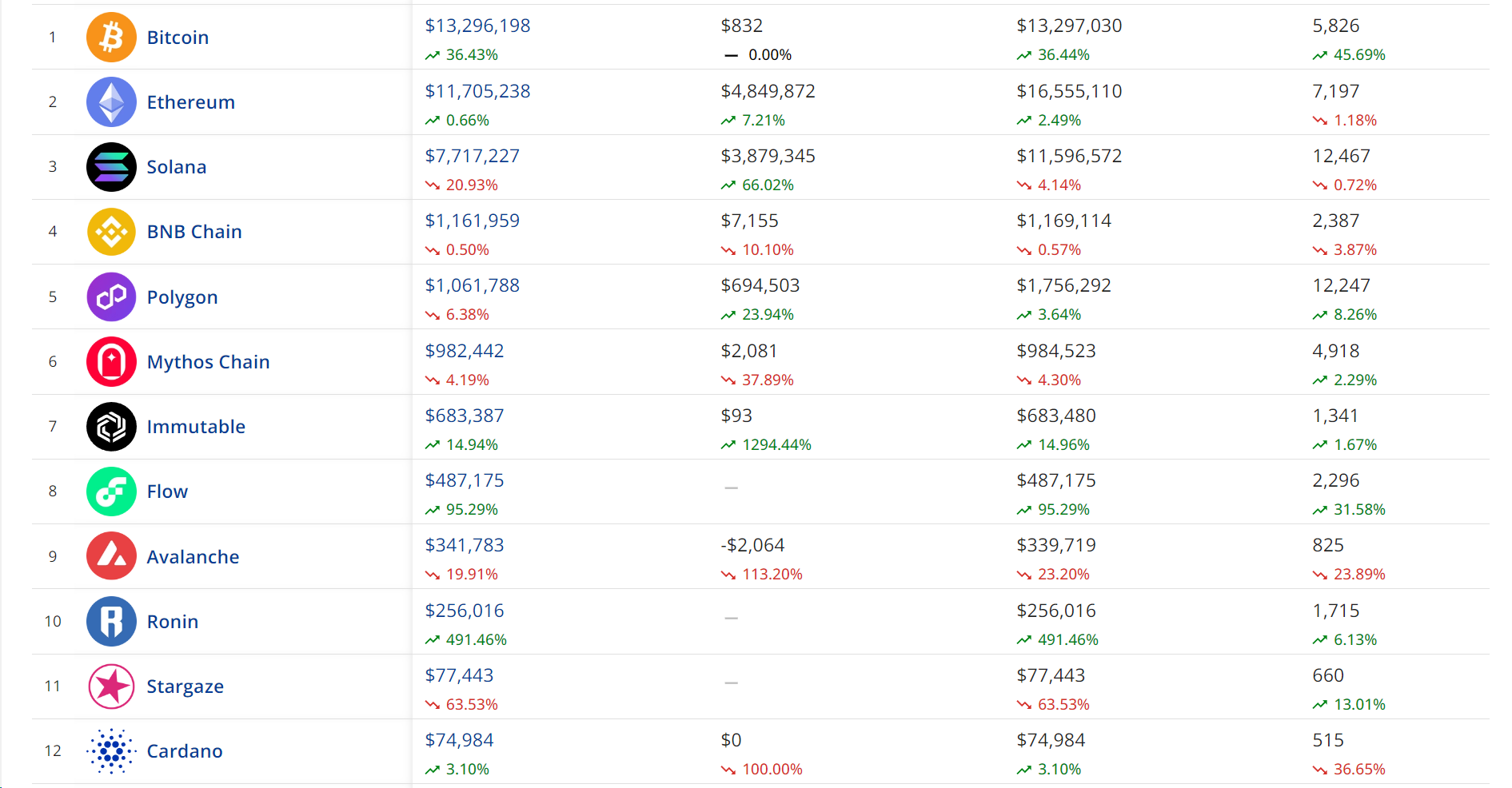2024-03-20

Avalanche is a layer-1 and a smart
contract blockchain. Avalanche mainnet was launched in September 2020.
Avalanche’s time to finality is about 1
second, it is a near-instant finality blockchain.
Avalanche blockchain can process 4,500
TPS. It currently has 1,200 validators.
Founder
Avalanche founded by Emin Gun Sirer. He
is the CEO and founder of Avalanche.
Emin Gun Sirer is of Turkish
descendant. He was born in Istanbul and grew up in Turkey.
He is a computer scientist. He received
Ph.D. in Computer Science. He was a professor at Cornell University. He left
his professor career after he founded Avalanche.
Programming language
Solidity is the programming language
for writing smart contracts on Avalanche.
The advantage of Solidity is that
developers can duplicate existing Ethereum dApps onto Avalanche.
Avalanche consist of 3 blockchains.

Avalanche is not only 1 blockchain but
3 blockchains. These 3 blockchains enable scalability to create high
throughput.
C-Chain (The Contract Chain)
C stands for contract; so, C-Chain is
for smart contracts, DeFi, and dApps.
C-Chain supports the Ethereum Virtual
Machine, developers can deploy Solidity smart contract onto the C-Chain.
C-Chain uses 0x Ethereum-style
addresses at the beginning.
Most of Avalanche dApps work on
C-Chain. When we talk about Avalanche blockchain. Mostly, it means C-Chain.
C-Chain is where normal users use Avalanche.
X-Chain (The Exchange Chain)

X-Chain comes from Exchange Chain. It
is a DAG. DAG technology enables Avalanche to process high TPS with fast
finality.
X-Chain is used for sending and
receiving tokens. It is not used for dApps and it does not support MetaMask. It
only access through the Avalanche web wallet.
P-Chain (The Platform Chain)
P stands for platform. P-Chain allows
validators to stake AVAX tokens. Validators and delegators receive AVAX rewards
through this chain.
P-Chain also manage and coordinate all
validators on the Subnets.

C, P, X chains are called the Primary Network.
Avalanche has a bridge between Avalanche, Ethereum, Bitcoin, and Cosmos.
Tokenomics
AVAX is the native token of Avalanche.
It uses for paying transaction fees and staking to secure the network.
AVAX has a max supply of 720 million
tokens. Half of AVAX max supply minted at genesis. The other half reserved for
staking rewards.
360 million AVAX were premined. The
rest of AVAX will constantly release to reward validators.
From 360 million premined AVAX;
-72.00 million AVAX went to team (10%).
-66.67 million AVAX went to Foundation
(9.3%).
-59.76 million AVAX went to Public Sale
Option A2 (8.3%).
-50.40 million AVAX went to Community
& Development Endowment (7.0%).
-36.00 million AVAX went to Strategic
Partners (5.0%).
-25.20 million AVAX went to Private
Sale (3.5%).
-18.00 million AVAX went to Seed Sale
(2.5%).
-18.00 million AVAX went to Airdrop
(2.5%).
-7.20 million AVAX went to Public Sale
Option A1 (1.0%).
-4.82 million AVAX went to Public Sale
Option B (0.7%).
-1.94 million AVAX went to Incentivized
Testnet Program (0.3%).
AVAX utility
AVAX uses for staking and paying
transaction fees.
Ecosystem
Trader Joe
Trading Joe is a lending platform and
the biggest decentralized exchange on Avalanche.
Aave
Aave, the largest lending and borrowing
platform supports Avalanche.
GMX
GMX is a decentralized derivatives
exchange. It supports Arbitrum and Avalanche.
NFTs

According to Cryptoslam, Avalanche is 9th
most widely used blockchain for NFTs.
Web3 Games
Avalanche has a policy that support
Web3 games on Avalanche. Game developers and game studios can build games on
both Avalanche mainnet and Subnets.
Subnet
Subnet or Subnetwork is a customizable
blockchain. Each Subnet can process 4,500 TPS.
Avalanche is the 3rd
generation blockchain. Anybody can create their own blockchain with their own
rules and their own virtual machine using the Subnet.
Developers can design rules of their
blockchains when creating Subnets.
Tokens can be moved between Subnets.
HyperSDK
Avalanche is developing a HyperSDK
blockchain that support more than 100,000 TPS for Subnets.
HyperSDK provides a foundation for
developers to build high performance blockchains with custom virtual machines
from scratch. Developers take only a few days to build HypderSDK compare to
many months of coding their own HyperSDK chain.
HyperSDK allows developers to build
lightning fast and scalable blockchains.
In conclusion, Avalanche has a very
high throughput, it has very fast finality blockchain, and it is scalable using
Subnets.
This article is exploring the potential
of Avalanche, hope it helpful.